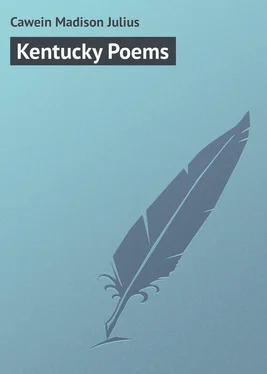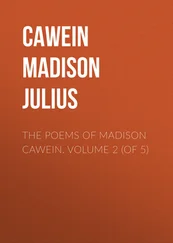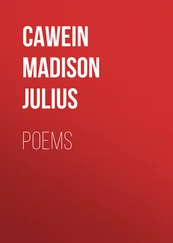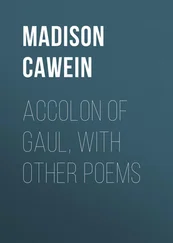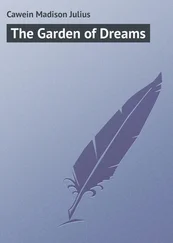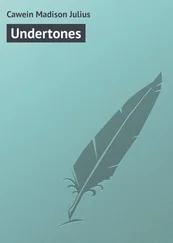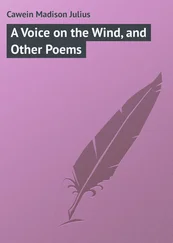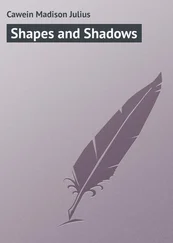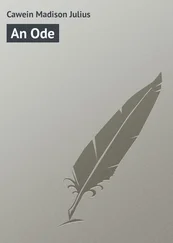Madison Cawein - Kentucky Poems
Здесь есть возможность читать онлайн «Madison Cawein - Kentucky Poems» — ознакомительный отрывок электронной книги совершенно бесплатно, а после прочтения отрывка купить полную версию. В некоторых случаях можно слушать аудио, скачать через торрент в формате fb2 и присутствует краткое содержание. Жанр: foreign_prose, на английском языке. Описание произведения, (предисловие) а так же отзывы посетителей доступны на портале библиотеки ЛибКат.
- Название:Kentucky Poems
- Автор:
- Жанр:
- Год:неизвестен
- ISBN:нет данных
- Рейтинг книги:5 / 5. Голосов: 1
-
Избранное:Добавить в избранное
- Отзывы:
-
Ваша оценка:
- 100
- 1
- 2
- 3
- 4
- 5
Kentucky Poems: краткое содержание, описание и аннотация
Предлагаем к чтению аннотацию, описание, краткое содержание или предисловие (зависит от того, что написал сам автор книги «Kentucky Poems»). Если вы не нашли необходимую информацию о книге — напишите в комментариях, мы постараемся отыскать её.
Kentucky Poems — читать онлайн ознакомительный отрывок
Ниже представлен текст книги, разбитый по страницам. Система сохранения места последней прочитанной страницы, позволяет с удобством читать онлайн бесплатно книгу «Kentucky Poems», без необходимости каждый раз заново искать на чём Вы остановились. Поставьте закладку, и сможете в любой момент перейти на страницу, на которой закончили чтение.
Интервал:
Закладка:
Cawein Madison Julius
Kentucky Poems
INTRODUCTION
Since the disappearance of the latest survivors of that graceful and somewhat academic school of poets who ruled American literature so long from the shores of Massachusetts, serious poetry in the United States seems to have been passing through a crisis of languor. Perhaps there is no country on the civilised globe where, in theory, verse is treated with more respect and, in practice, with a greater lack of grave consideration than America. No conjecture as to the reason of this must be attempted here, further than to suggest that the extreme value set upon sharpness, ingenuity and rapid mobility is obviously calculated to depreciate and to condemn the quiet practice of the most meditative of the arts. Hence we find that it is what is called 'humorous' verse which is mainly in fashion on the western side of the Atlantic. Those rhymes are most warmly welcomed which play the most preposterous tricks with language, which dazzle by the most mountebank swiftness of turn, and which depend most for their effect upon paradox and the negation of sober thought. It is probable that the diseased craving for what is 'smart,' 'snappy' and wide-awake, and the impulse to see everything foreshortened and topsy-turvy, must wear themselves out before cooler and more graceful tastes again prevail in imaginative literature.
Whatever be the cause, it is certain that this is not a moment when serious poetry, of any species, is flourishing in the United States. The absence of anything like a common impulse among young writers, of any definite and intelligible, if excessive, parti pris , is immediately observable if we contrast the American, for instance, with the French poets of the last fifteen years. Where there is no school and no clear trend of executive ambition, the solitary artist, whose talent forces itself up into the light and air, suffers unusual difficulties, and runs a constant danger of being choked in the aimless mediocrity that surrounds him. We occasionally meet with a poet in the history of literature, of whom we are inclined to say, Charming as he is, he would have developed his talent more evenly and conspicuously, – with greater decorum, perhaps, – if he had been accompanied from the first by other young men like-minded, who would have formed for him an atmosphere and cleared for him a space. This is the one regret I feel in contemplating, as I have done for years past, the ardent and beautiful talent of Mr. Cawein. I deplore the fact that he seems to stand alone in his generation; I think his poetry would have been even better than it is, and its qualities would certainly have been more clearly perceived, and more intelligently appreciated, if he were less isolated. In his own country, at this particular moment, in this matter of serious nature-painting in lyric verse, Mr. Cawein possesses what Cowley would have called 'a monopoly of wit,' In one of his lyrics Mr. Cawein asks —
'The song-birds, are they flown away,
The song-birds of the summer-time,
That sang their souls into the day,
And set the laughing hours to rhyme?
No cat-bird scatters through the hush
The sparkling crystals of her song;
Within the woods no hermit-thrush
Trails an enchanted flute along.'
To this inquiry, the answer is: the only hermit-thrush now audible seems to sing from Louisville, Kentucky. America will, we may be perfectly sure, calm herself into harmony again, and possess once more her school of singers. In those coming days, history may perceive in Mr. Cawein the golden link that bound the music of the past to the music of the future through an interval of comparative tunelessness.
The career of Mr. Madison Cawein is represented to me as being most uneventful. He seems to have enjoyed unusual advantages for the cultivation and protection of the poetical temperament. He was born on the 23rd of March 1865, in the metropolis of Kentucky, the vigorous city of Louisville, on the southern side of the Ohio, in the midst of a country celebrated for tobacco and whisky and Indian corn. These are commodities which may be consumed in excess, but in moderation they make glad the heart of man. They represent a certain glow of the earth, they indicate the action of a serene and gentle climate upon a rich soil. It was in this delicate and voluptuous state of Kentucky that Mr. Cawein was born, that he was educated, that he became a poet, and that he has lived ever since. His blood is full of the colour and odour of his native landscape. The solemn books of history tell us that Kentucky was discovered in 1769, by Daniel Boone, a hunter. But he first discovers a country who sees it first, and teaches the world to see it; no doubt some day the city of Louisville will erect, in one of its principal squares, a statue to 'Madison Cawein, who discovered the Beauty of Kentucky.' The genius of this poet is like one of those deep rivers of his native state, which cut paths through the forests of chestnut and hemlock as they hurry towards the south and west, brushing with the impulsive fringe of their currents the rhododendrons and calmias and azaleas that bend from the banks to be mirrored in their flushing waters.
Mr. Cawein's vocation to poetry was irresistible. I do not know that he ever tried to resist it. I have even the idea that a little more resistance would have been salutary for a talent which nothing could have discouraged, and which opposition might have taught the arts of compression and selection. Mr. Cawein suffered at first, I think, from lack of criticism more than from lack of eulogy. From his early writings I seem to gather an impression of a Louisville more ready to praise what was second-rate than what was first-rate, and practically, indeed, without any scale of appreciation whatever. This may be a mistake of mine; at all events, Mr. Cawein has had more to gain from the passage of years in self-criticism than in inspiring enthusiasm. The fount was in him from the first; but it bubbled forth before he had digged a definite channel for it. Sometimes, to this very day, he sports with the principles of syntax as Nature played games so long ago with the fantastic caverns of the valley of the Green River or with the coral-reefs of his own Ohio. He has bad rhymes, amazing in so delicate an ear; he has awkwardness of phrase not expected in one so plunged in contemplation of the eternal harmony of Nature. But these grow fewer and less obtrusive as the years pass by.
The virgin timber-forests of Kentucky, the woods of honey-locust and buck-eye, of white oak and yellow poplar, with their clearings full of flowers unknown to us by sight or name, from which in the distance are visible the domes of the far-away Cumberland Mountains, this seems to be the hunting-field of Mr. Cawein's imagination. Here all, it must be confessed, has hitherto been unfamiliar to the Muses. If Persephone 'of our Cumnor cowslips never heard,' how much less can her attention have been arrested by clusters of orchids from the Ocklawaha, or by the song of the Whippoorwill, rung out when 'the west was hot geranium-red' under the boughs of a black-jack on the slopes of Mount Kinnex. 'Not here,' one is inclined to exclaim, 'not here, O Apollo, are haunts meet for thee,' but the art of the poet is displayed by his skill in breaking down these prejudices of time and place. Mr. Cawein reconciles us to his strange landscape – the strangeness of which one has to admit is mainly one of nomenclature, – by the exercise of a delightful instinctive pantheism. He brings the ancient gods to Kentucky, and it is marvellous how quickly they learn to be at home there. Here is Bacchus, with a spicy fragment of calamus-root in his hand, trampling down the blue-eyed grass, and skipping, with the air of a hunter born, into the hickory thicket, to escape Artemis, whose robes, as she passes swiftly with her dogs through the woods, startle the humming-birds, silence the green tree-frogs, and fill the hot still air with the perfumes of peppermint and penny-royal. It is a queer landscape, but one of new natural beauties frankly and sympathetically discovered, and it forms a mise en scène which, I make bold to say, would have scandalised neither Keats nor Spenser.
Читать дальшеИнтервал:
Закладка:
Похожие книги на «Kentucky Poems»
Представляем Вашему вниманию похожие книги на «Kentucky Poems» списком для выбора. Мы отобрали схожую по названию и смыслу литературу в надежде предоставить читателям больше вариантов отыскать новые, интересные, ещё непрочитанные произведения.
Обсуждение, отзывы о книге «Kentucky Poems» и просто собственные мнения читателей. Оставьте ваши комментарии, напишите, что Вы думаете о произведении, его смысле или главных героях. Укажите что конкретно понравилось, а что нет, и почему Вы так считаете.
